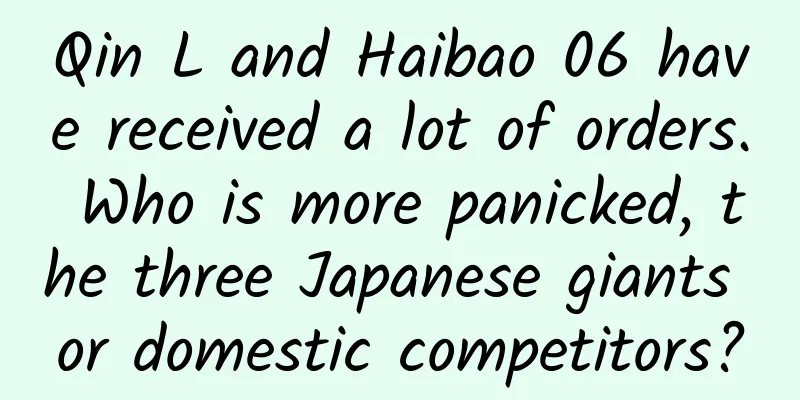What modern academic qualifications do the ancient scholars, juren and jinshi correspond to?

|
The ancient imperial examination system was the fairest way for the feudal state to select talents. No matter whether one was rich or poor, or from a poor family, as long as one had enough knowledge, one could pass the examination and enter the officialdom, serve the country, and realize his lofty ambitions. The imperial examination system in the Tang Dynasty was held once a year, just like the current college entrance examination. However, during the reign of Emperor Taizong of the Song Dynasty, changes occurred, changing the annual examination system to one held every year or every two years. Perhaps the court at that time was not short of talents, or perhaps the emperor felt that holding it once a year was too troublesome, so after Emperor Yingzong of Song came to power, the imperial examination system was changed to one held every three years. The imperial examination is divided into six levels. Here, taking the Ming and Qing dynasties as an example, it is usually the county test, prefectural test, academy test, provincial test, metropolitan test, and palace test. At present, my country's education is divided into primary school, junior high school, high school, university, etc. What is the equivalent of the ancient scholar, juren, and jinshi in today's education? 01 Scholar The imperial examination system lasted for more than 1,200 years from its inception to its end, but there are different opinions about the time of its establishment. However, the steps of the imperial examination system were basically finalized during the Sui Dynasty, and gradually matured in the Tang and Song Dynasties. The content of the imperial examinations in the Tang and Song dynasties was very complicated, and the content that students needed to study was also very diverse. It was not until the Ming and Qing dynasties that the imperial court changed the content of the examinations to eight-part essays. Influenced by today's film and television dramas, the contemporary people think that scholars are poor people who can't carry anything, speak nonsense, or are poor. But is this really the case? To be honest, passing the exam is not as simple as just touching your lip. In addition to your actual level, it also has a lot to do with the preferences of the examiner at the time and the difficulty of the exam questions. If the questions are just right and the writing style is in the examiner's favor, as long as you have studied hard for ten years, there will generally be no problem. Only after obtaining the title of Xiucai, one is qualified to enter the officialdom. Above Xiucai is Juren, and the examination for Juren is much more difficult than that for Xiucai. If one fails to pass the examination, he will stay at the Xiucai stage for the rest of his life. It is common to see Xiucai in his sixties and teenagers in their twenties taking the examination together, because some people will remain Xiucai until their death. The examination for the scholar is divided into three stages, called Tongshi. Of course, Tongshi is not literally an examination for children. It is just a name and has no age limit. Tongshi includes three stages: county examination, prefecture examination and academy examination. Those who take the examination are collectively called Confucian scholars or Tongsheng. Tongshi can be said to be the entrance examination for the scholar. After passing the Tongshi, the admitted candidates were called students, or "scholars" in our oral language. Although scholars were the lowest level of candidates who passed the exam at that time, their strength should not be underestimated, because they had already stepped half a foot into the officialdom and were respected by the locals. At that time, if a girl from an ordinary family could marry a scholar, she would be satisfied. Although their titles were not high, they still had some privileges, such as being exempt from corvée and not having to kneel when meeting the county magistrate. So the Xiucai was equivalent to today's undergraduates. Just like now, we can only enter society after obtaining a qualification certificate and completing our studies. 02 Juren Above the Xiucai is the Juren, and people usually call the Juren Master, which shows the status of the Juren, otherwise why no one calls him "Xiucai Master". But most people may not know that after passing the Xiucai, they cannot directly take the Juren exam. Before the Juren exam, the Xiucai must pass the provincial education examination, and only those with the best scores can take the provincial examination. The examination for the candidates is called the provincial examination, and only those who pass the provincial examination can be called the candidates. The provincial examination is usually held in August, so it is also called the "autumn examination". The candidates are also called Xiaolian, and after passing the provincial examination, they can be said to have set foot on the official career. To put it simply, a juren is an official who is a substitute for the imperial court. However, not everyone is qualified to be this substitute official. There are only a few vacancies every year, and everyone would fight for them. Of course, this is for those who fail to pass the jinshi exam but want to become an official directly. Those who passed the Juren exam and wanted to move up the career ladder could take the Jinshi exam. After passing the Jinshi exam, it would be easy to become an official. If one achieved outstanding political achievements during his tenure as an official and was appreciated by the emperor, his career would be bright. Juren can be said to be equivalent to modern graduate students. After all, they were selected from among many scholars, and their status was one level higher. 03 Jinshi After passing the imperial examination, the next step is to pass the imperial examination, which is called the joint examination. The joint examination is usually held in the second year of the provincial examination and is held in the capital. The imperial examination is different from the provincial examination and the provincial examination. In addition to the written examination, there is also a palace examination. To put it bluntly, it is just like the job interview nowadays. Only if you catch the eye of the emperor, the big boss, can you be given an admission notice, and finally the emperor will decide the top three, which are usually referred to as the top three. After completing these procedures, the top three candidates can directly enter the official career, and the rest of the Jinshi candidates will have to take another exam and be awarded different official positions based on their scores. Although Jinshi candidates can be further divided into first-class and second-class candidates, they will have no problem becoming an official, so Jinshi candidates are equivalent to today's doctoral students. 04 Summary: The establishment of the imperial examination system greatly expanded the number of scholars introduced under the ancient feudal system, allowing those ambitious people from humble backgrounds to realize their ambitions. It is the fairest way to select talents in today's society. "Ten years of hard study and no one cares, but one success will make you famous all over the world" is a true portrayal of the imperial examination system at that time, and it is also the only way for scholars from humble backgrounds to enter the government. Although the story of Fan Jin passing the imperial examination in The Scholars is exaggerated, it also truly reflects a social phenomenon at that time. The attitudes of the neighbors, his wife, and his father-in-law all prove how glorious it is for a person who has studied hard to enter the official career. The ancient imperial examination system was like a thousand troops crossing a single-plank bridge. If you passed, you passed. If you failed, you failed. It was not like today when everyone can go to school. Even so, it cannot be denied that the imperial examination system did promote the development of various cultural and economic aspects in ancient times and brought Chinese society into a new era. |
<<: In the hot summer, be careful! The "number one killer" of foodborne diseases may be around you!
>>: Are they all cactus fruits? Why do dragon fruits come in so many colors?
Recommend
The EU is only concerned about its own business, and doesn't care about Germany's problems. Who will suffer from the tariffs on Chinese electric vehicles?
On June 12, the European Commission announced tha...
QQ big update, voice progress bar is here!
On April 13, QQ welcomed the update to version 8....
"Invisible animals" are rare in nature. Scientists have developed a real-life version of the invisibility cloak. How effective is it?
"Invisible animals" are rare in nature....
From 1 to 10, a marketing strategy for leapfrogging growth
Recently, the topics of new consumption and Doubl...
Six JavaScript frameworks that developers should know
With the rapid development of the Internet, mobil...
Why don't humans have green hair?
Every kind of life has its own color, and the evo...
Did you sleep well today?
This is the 3602nd article of Da Yi Xiao Hu A bus...
Community shipments 5000+? 3 practical experiences to easily start community group buying
Nowadays, community group buying is booming and f...
If you get bitten, you will go into coma and shock! Some people have died from this. If you see it, please stay away immediately!
It is summer now. In southern my country, a kind ...
iOS 14.2 is updated again: New features of iPhone 12 appear in advance
Yesterday, Apple released iOS 14.1 GM version and...
How much does it cost to develop a Guoluo home decoration mini program?
How much does it cost to attract investment for t...
Can eating less make you live longer? The latest large-scale mouse experiment tells us: It's not that simple
Produced by: Science Popularization China Author:...
Push operation skills: How to push products well
Today we are talking about push, which is the mos...
XGIMI Yang Rong: Soft marketing methods that do not harm user experience can create more benefits
On September 22, at the "2017 China OTT Larg...









